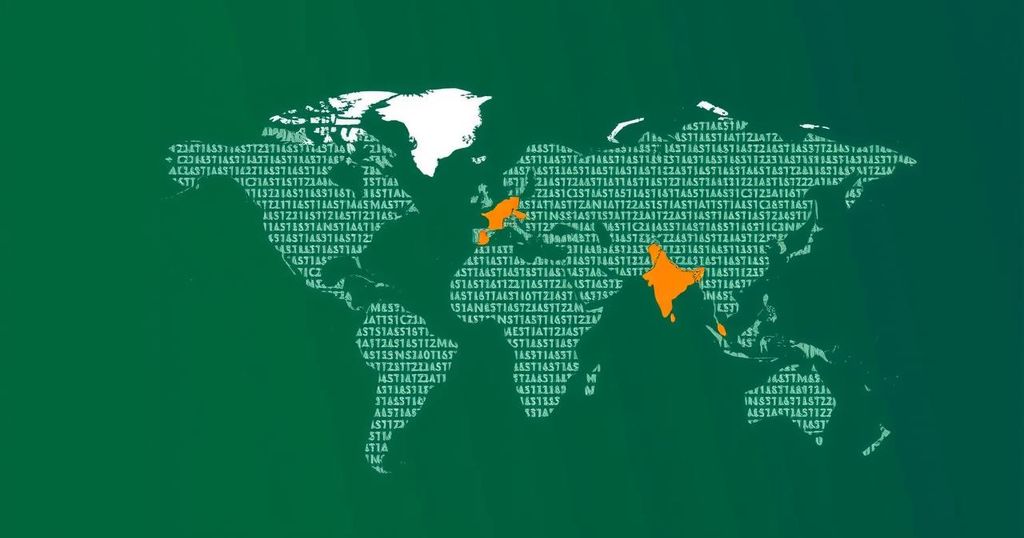India Rejects $300 Billion Climate Finance Proposal at COP29 as Insufficient

India has rejected the proposed $300 billion climate finance package for the Global South at COP29, labeling it inadequate compared to the $1.3 trillion needed. Chandni Raina expressed disappointment over the lack of opportunity to discuss concerns before the adoption of the proposal, which undermines trust and does not align with the needs of developing nations. She emphasized the detrimental impacts of advanced unilateral measures and the urgency for equitable climate resource allocations.
On November 24, 2024, during the UN climate conference, India formally rejected the proposed $300 billion annual climate finance package intended for the Global South by 2035, deeming it insufficient and overly distant. This figure significantly contrasts with the $1.3 trillion requested by the Global South over previous years of climate negotiations. Chandni Raina, an adviser in the Department of Economic Affairs, voiced India’s concerns regarding the lack of inclusive dialogue before adopting the deal, which she claimed eroded trust in the negotiation process.
Raina criticized the package for failing to meet the developmental needs of poorer nations and violating the fundamental principle of Common but Differentiated Responsibilities (CBDR). Her statement was met with applause from attendees, denoting widespread support for India’s position. She highlighted the disproportionate impacts of climate change on developing nations and emphasized that these countries are often compelled to pursue low-carbon transitions detrimental to their economic growth. Raina contended that the Climate Finance Package’s current structure undermines these nations’ capacity to adapt effectively.
Additionally, developing nations expressed solidarity with India, with Nigeria condemning the proposed financial offer as a “joke,” while Malawi and Bolivia also joined in objection. The measures threatened by unilateral actions from developed nations, such as the Carbon Border Adjustment Mechanism, were noted by Raina to complicate efforts in transitioning to greener methodologies.
The proposal from the conference aimed to mobilize this $300 billion annually by 2035 from various sources, yet its initiation does not prioritize the responsibilities of wealthier countries. Raina firmly declared, “India does not accept the goal proposal in its present form,” indicating strong discontent with the existing framework of negotiations. This ambiguous commitment replaces the previous $100 billion pledge made in 2009, stretching expectations around the financial responsibilities of both public and private sectors in addressing climate challenges.
The question of climate finance remains central to discussions about climate change, particularly for developing countries that are often hardest hit by its effects. The Global South has been vocal in recent years about their need for substantial financial support to combat climate impacts. The proposal of a $300 billion climate finance package by 2035 was intended to address these concerns, yet it has come under scrutiny for not meeting the actual financial needs that have been voiced by these nations over several negotiation periods. The negotiations historically have been laden with issues of trust and transparency, particularly from developing countries who feel sidelined in crucial discussions.
In summary, India’s rejection of the $300 billion climate finance proposal underscores the ongoing struggle for equitable and sufficient financial support to combat climate change. The consensus among many developing nations reflects a broader dissatisfaction with the current framework that fails to appreciate their unique challenges. The call for enhanced inclusivity and respect for differentiated responsibilities appears critical as negotiations progress, highlighting the urgency for developed nations to adhere to their commitments in order to foster a genuinely collaborative approach to climate action.
Original Source: swarajyamag.com






